It’s a question we often get asked here at Cognac Expert: What Cognac should I try if I’m more of a Whisky drinker?
Well, you only need to ask and we’ll do our utmost to provide an answer. And of course, we’re always very happy to introduce more people to the joys of this iconic French spirit. So let’s have a deep dive into Cognac vs Whisky!
We’ll first look at the differences between the two drinks and afterward explain why people often compare the two drinks. We give our opinion on what Cognacs might tickle a Whisky drinker’s fancy and what Cognac Malternatives there are. And we have to say, whilst Whisky might be the drink of choice in many countries, Cognac is certainly increasing its legions of fans as more and more people get turned onto its delights.
So, Whisky fans. If you’re looking to try a Cognac that will appeal to your Whisky palate, let’s have a look at some great ones for you to try.

Cognac and Whisk(e)y explained
Cognac and Whisk(e)y are two of the most popular spirits in the world, and they both are distilled spirits, and have a rich history and culture behind them. Many different Cognac brands (the most known one being Hennessy and Remy Martin) and whisk(e)y brands exist. While they may seem similar at first glance, there are some key differences that set them apart. Here’s a closer look at what makes Cognac and Whisk(e)y unique.
What is Cognac?
Cognac is a type of brandy that is made exclusively in the Cognac region of France. It is made from specific types of grapes, including Ugni Blanc, Folle Blanche, and Colombard. The fermented grape juicemade out of these white wine grapes becomes French white wine and is double distilled in copper pot stills. The Cognac production is wrapped up with the eaux-de-vie being aged for at least two years, although most eaux-de-vie age for much longer.
What is Whisk(e)y?
Whis(e)ky, on the other hand, is a distilled spirit that is made from fermented grains. The most common grains used in Whisk(e)y production are barley, corn, rye, and wheat. Like Cognac, Whisk(e)y is also matured in oak barrels, although the length of time can vary depending on the type of Whisk(e)y and the distillery that produces it.
Whisky vs. Whiskey
Whisky and Whiskey are two different spellings for the same spirit, but the spelling can actually reveal something about the spirit itself. Generally, “Whisky” refers to the spirit made in Scotland, Canada, and Japan, while “Whiskey” refers to the distilled spirits made in Ireland and the United States. The spelling difference may seem small, but it can indicate certain differences in the production process and flavor profile of the spirits. For example, Scottish and Japanese Whiskies tend to be smokier and more robust, while Irish and American Whiskeys are often smoother and sweeter – broad generalizations.
In terms of production, one key difference between Whisky and Whiskey is the type of grains used. Scottish and Canadian Whiskies are typically made from malted barley, while Irish and American Whiskeys may also include other grains, such as corn or rye.
Additionally, the aging process can vary between different types of Whisky and Whiskey, with some spirits being aged in French oak barrels that have been previously used for other wines and spirits, such as Sherry or Bourbon, to impart additional flavors and aromas. Overall, while Whisky and Whiskey may seem like similar spirits, there are important differences in terms of spelling, production, and flavor that make each unique.
What is a single malt Whisk(e)y?
Under the United Kingdom’s Scotch Whisk(e)y Regulations, a single malt Whisk(e)y must be exclusively made from barley (fermented grain mash) – while the addition of E150A caramel coloring is allowed. It must also be distilled using pot stills at a single distillery before being aged for at least 3 years in oak casks, and these casks must not exceed the capacity of 700 liters (180 US gallons). Barley, yeast and water are the only ingredients required in the production of a single malt Whisk(e)y.
Although 3 years of aging is the legal minimum requirement for a single malt Whisk(e)y, typical maturation periods range between 10 and 15 years for a quality offering.
Bourbon Whiskey
Bourbon Whiskey is a distinctive American spirit, celebrated for its rich history and unique flavor profile. Made primarily from corn, bourbon must contain at least 51% corn in its mash bill. You can find rye whiskey, wheat whiskey, and barley whiskey under that category. Aged in charred new oak barrels, this aging process imparts the signature amber color and complex flavors of caramel, vanilla, and spice.
Legally, to be labeled as bourbon Whiskey, the spirit must be produced in the United States and adhere to strict production guidelines. Originating from Kentucky, bourbon has become a symbol of American heritage, enjoyed by enthusiasts and connoisseurs alike.
Cognac vs Whisk(e)y: Differences
Now that we know a little bit about what makes Cognac and Whisk(e)y unique, let’s take a closer look at the key differences between the two.
Ingredients
As we mentioned earlier, Cognac is made exclusively from specific types of grapes, while Whisky is made from grains. This difference in ingredients gives the two spirits distinct flavors and aromas.

Production Process
Cognac undergoes double distillation in copper pot stills, while Whisk(e)y is distilled once or twice, depending on the type of Whisk(e)y. Additionally, Cognac is always aged in oak barrels, while Whisk(e)y can be aged in a variety of different barrels, including oak, sherry, and bourbon barrels.
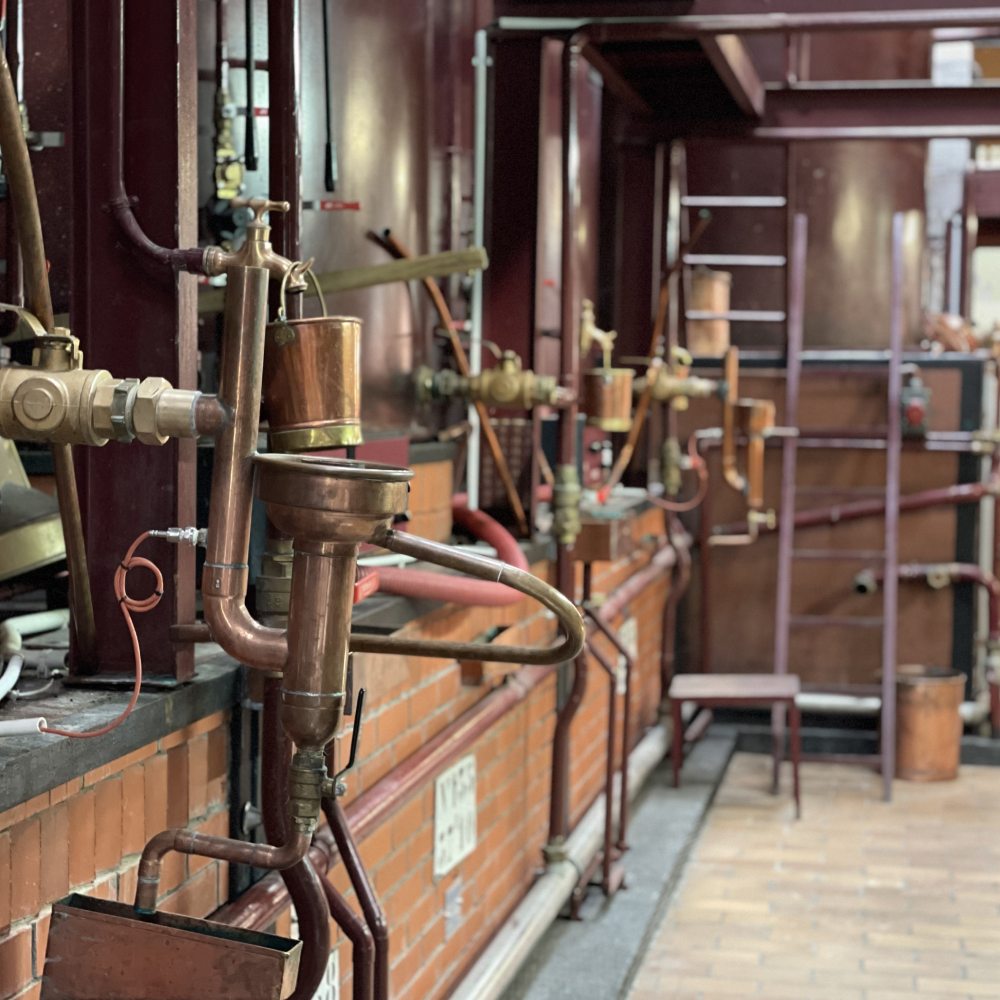
Location
Perhaps the biggest difference between Cognac and Whisk(e)y is their place of origin. Cognac can only be made in the Cognac region in the South of France, while Whisk(e)y is made all over the world, with different countries and regions producing their own unique styles.
Flavor Profile
Cognac is known for its smooth, elegant flavor profile, with notes of fruit, vanilla, and oak. Whisk(e)y, on the other hand, can have a wide range of flavors depending on the type and age of the Whisk(e)y. Some Whiskies are sweet and spicy, while others are smoky and peaty.
Read our blog article highlighting the difference between brandy and Whisk(e)y.
Cognac Malternatives
With the price of malt Whisk(e)y on the rise, Whisk(e)y lovers are becoming increasingly more drawn to the idea of seeking out appealing alternatives to their loyal spirit. Now more than ever, the never-ending spectrum of choice invites discerning spirits drinkers to dabble with new tasting experiences. But with so many spirits on the market, which are best suited to lovers of single malt Whiskies?
From Cognacs and Armagnacs to Rums and Tequilas – there’s a whole host of different options to choose from when seeking out an alternative to malt Whisk(e)y.
To find out more about what makes a good “malternative”, we previously spoke with spirits experts Angus MacRaild of Whisky Sponge, John Go of Malt Review and asked within the Cognac Expert team as well as the Cognac Lovers Facebook Group. They divulged their expert views on the matter of malt Whiskies and even shared some of their personal favorites when it comes to choosing a quality malternative.
What is a Cognac Malternative?
By this point, you may have already worked out that a “malternative” is a play on words and represents a beverage that can be selected as a quality alternative to single malt whisky. To elaborate on the concept of “malternatives”, we put the word out to the experts – we couldn’t have said it better than Angus, who defines a malternative as:
“A spirit possessing positive qualities that will also appeal to a lover of single malts – this doesn’t necessarily mean that it needs to be aged for a considerable time in wood like some brandies or rums are, but a good Mezcal or Tequila could also be a great malternative.”

So, whether you’re more inclined to try out rum, Cognac, Armagnac, other Whiskies or even mezcal and Tequila – it’s safe to say your options come in abundance. To help you decipher between the different choices, we think it will be helpful to take a closer look at the different malternative categories, before taking a more in-depth view of the origins, production process and taste of malt Whisk(e)y when compared with malternative: Cognac.
Why seek Malternatives?
Malternatives exist for two reasons:
Curiosity
With increasing choice, comes increasing curiosity to try new things – and it’s the same for Whisk(e)y drinkers. When we asked John why he thought scoping out alternatives to whisky may be becoming increasingly popular he explained:
“Variety is the spice of life. It would be boring to just drink whisk(e)y.”
So with that in mind, it comes as no surprise that even the most discerning Whisk(e)y connoisseurs can’t help but explore other realms of the spirits world. After all, doesn’t pursuing other experiences ground you in getting to know what truly makes you tick?
The increasing price of Whisk(e)y
Due to the ever-increasing price of single malt Whisk(e)y and the diminishing value of the age-to-price ratio, the Cognac Expert team concludes:
“Some malt connoisseurs are drawn into the search for malternatives out of frustration for the diminishing value of whisk(e)y’s age-to-price ratio.”
In this way, Angus agrees that it’s intriguing to look away from Whisk(e)y and find similar quality malternatives, as he too, suggested:
“Although price is, of course, a matter of perspective based on the depth of your own pockets, it’s true that if you enjoy the characteristics of age and maturity, those characteristics and flavor profiles can be massively more expensive when compared, for example, to Armagnac. So it’s no surprise there is this burgeoning world of malternatives where whisk(e)y lovers look elsewhere for similar enjoyment”.
Whether it’s over dismay of price or simply an itching curiosity, there is plenty of reason to extend your horizons beyond Whisk(e)y. To help, let’s take a more in-depth look at what some of the interviewees had to say when we asked them about their own personal malternatives.
What Malternative categories are there?
Cognac
While Cognac is arguably a beverage that takes a little longer to get to know than Whisk(e)y, Angus agrees that it’s really worth the effort when you do start to become accustomed to it. Plus there are many different Cognac houses out there producing great Malternatives. Angus explains:
“Unlike whisk(e)y, it is a drink very much about precision of style and nuance – I think the issue is most people experience very basic Cognacs that are bottled at 40%, heavily filtered and with sugar and other additives included. So most whisk(e)y drinkers are unimpressed by such spirits. I think once people taste the more natural Cognacs they can really find another world of beautiful, nuanced spirits that display gorgeous fruit and rancio flavours and deep finesse.”
He also added how specific malts may compare with Cognac:
“Lovers of older, or sherry matured styles of whisky from Speyside or the Highlands, for example, can find similar flavour profiles in varying degrees in older, naturally bottled Cognacs very often.”
Therefore, opting for a well-aged and most importantly – a completely natural Cognac (that hasn’t been filtered and doesn’t contain other additives) is an easy way to match the tasting experience granted when enjoying a quality malt Whisk(e)y.
Find a wide range of Cognacs in the Cognac Expert shop.
Armagnac
Like Cognac, Armagnac is made from grapes and also serves as a cost-effective alternative to malt Whisk(e)y. With comparable characteristics in terms of age and maturity, quality Armagnac stands alongside Cognac in that it reveals a flavorful aromatic profile that comes in varying degrees of strength and sweetness.

“Generally speaking, worthy malternatives will be bottled above 40%, have natural color, and be unchill-filtered. For the malt whisk(e)y geek, those words have practically become a religion, understandably so.” explains a Cognac Expert team member.
So if you’ve got your eye on an Armagnac that fits this criteria, we think it’s safe to say – you’ll have found yourself a trusty malternative delight. The chances are even if it’s an Armagnac of outstanding quality, it will come at a fraction of the price when compared with your favorite malt Whisk(e)y.
Head over to the Cognac Expert shop to find a tasty selection of Armagnacs.
Calvados
Standing in the lineup as another brandy option, this time we’re shining the spotlight on Calvados. Enjoyed on a much smaller scale than its big brothers Cognac and Armagnac, Calvados is nevertheless another delectable offering that holds its own to be appreciated in replacement of malt Whisk(e)y.
Produced with eau-de-vie made from apples (and sometimes pears) it reveals fruity nuances that may appeal to single malt drinkers who are partial to a sweeter aromatic profile rich in flavor. However, the different apple varieties used (bitter, sweet, tart, bittersweet, etc.) together with the producer’s unique style, makes it so there is likely to be a Calvados that suits almost every palette.
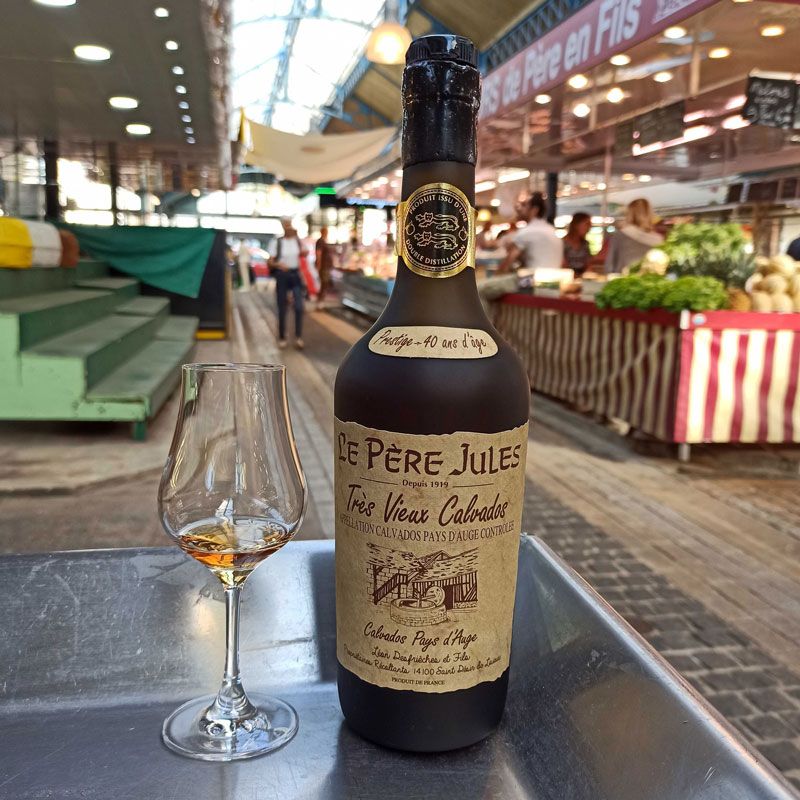
Learn more about the world of Calvados over on our main Cognac Expert website.
Mezcal/ Tequila
Tequila is a distilled beverage made from the blue agave plant principally in and around the city of Tequila in Mexico. Similar to mezcal, although the two spirits don’t share the same distillation process, they can be equally enjoyed as a unique alternative to Malt Whisk(e)y. Angus explains:
“A good Mezcal or Tequila can also be a great malternative, if you are a whisk(e)y lover who enjoys distillate-driven styles for example. I think the most important thing is that the drink possesses strong, pleasurable characteristics (nuance, personality, balance) that can be appreciated in the same way you’d enjoy a good malt whisk(e)y.”
Like malt Whisk(e)y, Tequila is also typically served neat (by Mexicans at least) and so, it offers a similar tasting experience as malt Whisk(e)y, meaning avid malt whisky drinkers won’t have to change the way in which they drink when enjoying this malternative either.
Rum
When it comes to finding a malternative that replaces the green and earthy sweetness of certain malt Whiskies for example, then Rhum Agricole is a strong option. There is a whole host of French Caribbean rums in particular that nod to the more vegetal flavors found in malt Whisk(e)y. Like malt Whisk(e)y, these types of rums often undergo part of their aging process in sherry casks or ex-bourbon barrels. The result reveals a similarly sweet aromatic profile to those found in Scotch Whiskies that have partaken in similar maturation methods.
The Wagemut Rum: A Spirited Cognac Malternative for the Modern Palate
Straddling the flavorful worlds of Rum and Cognac, the Wagemut Rum x Cognac Expert Rum is a masterstroke of Sophie & Max and Nicolas Kroeger, a noted rum maven from Germany.

This 12-year-old rum, reminiscent of an XO in the Cognac chronology, is an innovative take on traditional spirits. It matures for an additional three months in Cognac oak casks, then embarks on a three-month sojourn in the Limousin casks of Pineau des Charentes.
Hailing from Barbados and boasting an ABV of 43.6%, this rum is a visual treat with its golden hue and mesmerizing dance of medium-paced legs down the glass. Its vibrant aroma is a cornucopia of herbal, grassy notes, intertwined with the scent of dried red berries, iced cake, crushed strawberries, and stewed rhubarb, making it an enticing option for those on a quest for a Cognac alternative.
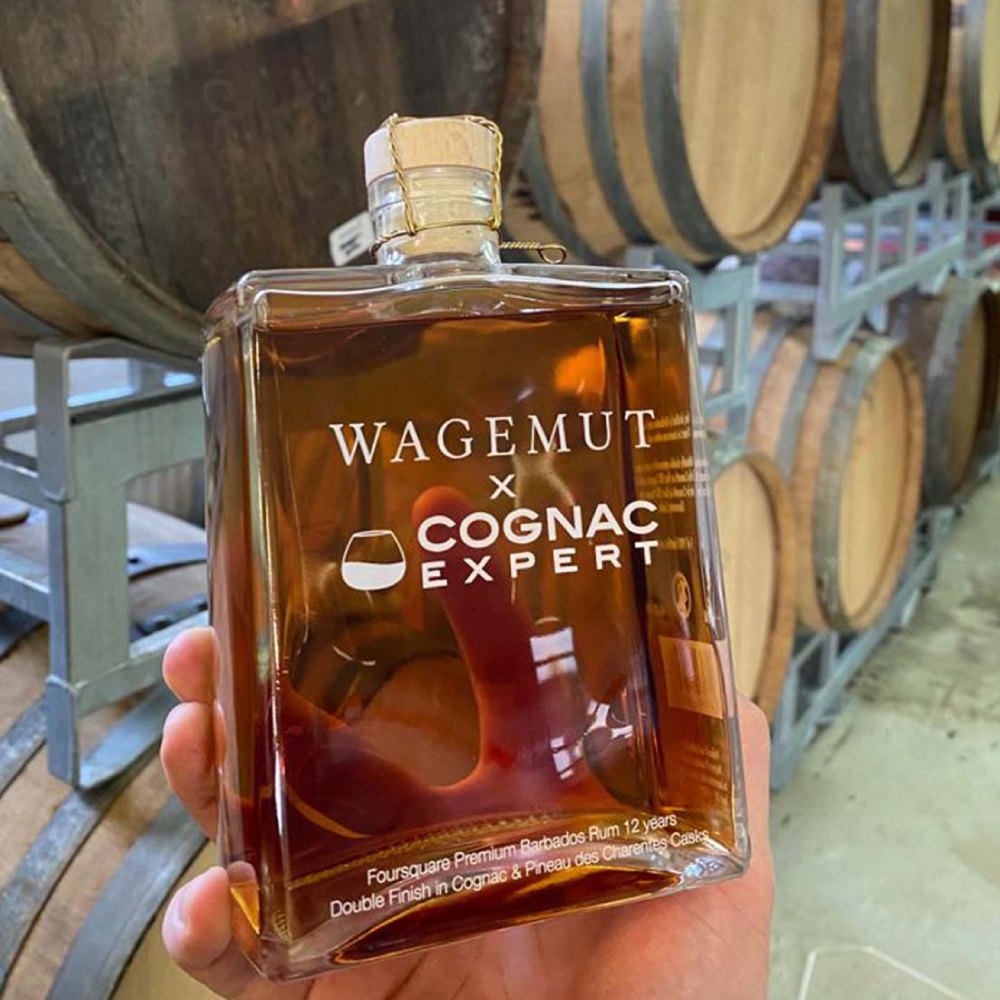
This Rum is a delightful jumble of juxtaposing flavors. It pleases the palate with a dessert-like richness, while maintaining a refreshing brightness, underscored by perfect acidity.
This bold collaboration between Max, Sophie and Nicolas was marked by a spirit of adventure, offering a captivating malternative to Cognac that’s sure to tickle the fancy of the modern spirits connoisseur.
Get yourself a bottle of the Wagemut x Cognac Expert Rum now here.
14 Best Cognac Malternatives
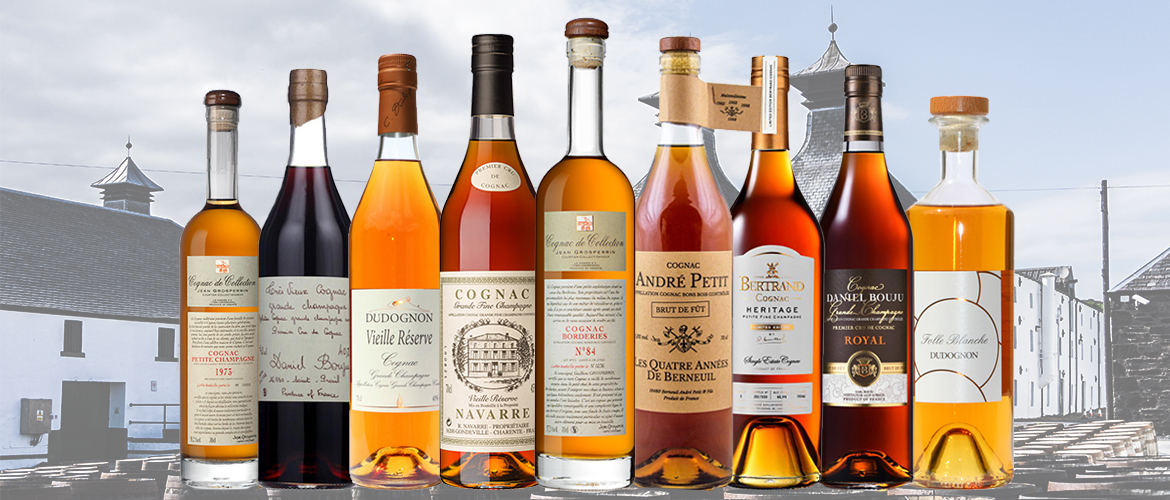
With the experts on board and with the answers provided by the community of the Cognac Lovers Facebook Group, we gathered a list of top Cognac malternatives.
André Petit Les Quatre Années de Berneuil
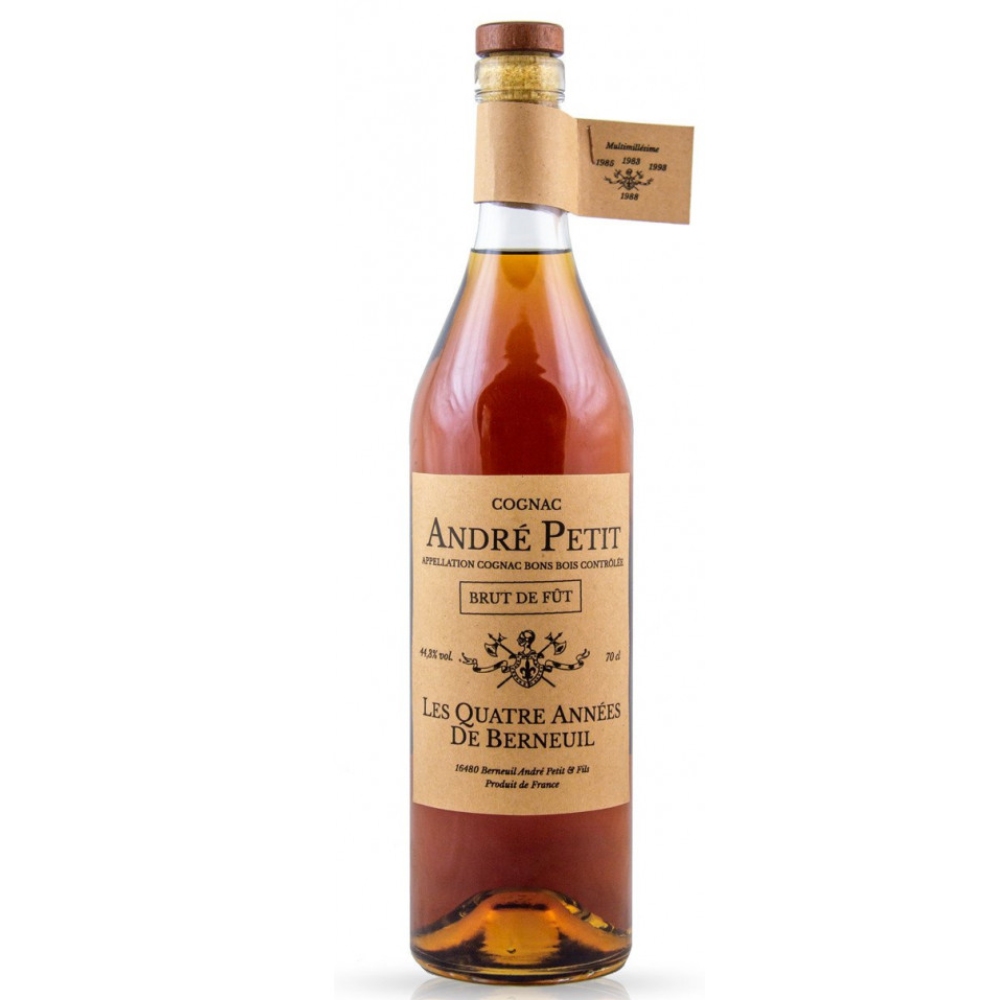
This spectacular and sentimental Cognac is a multi-millésime from the Bons Bois region, a stunning combination of four vintages, selected not only for their characteristics but also for the memories they evoke in their creator. This Limited Edition Brut de Fût Cognac has an ABV of 44,3 % and has been naturally reduced.
Find out more about a traditional cognac such as the Les Quatre Années de Berneuil here.
Navarre Vieille Réserve Grande Champagne

An explosion of rancio like no other. A Cognac for a true connoisseur. The concentration of nutty, cocoa and earthy notes is incredible. An undiluted taste experience, with rich savory flavors.
Navarre Vieille Réserve makes a great Cognac vs Whisk(e)y candidate. Get your personal bottle here.
Bertrand Héritage N°2
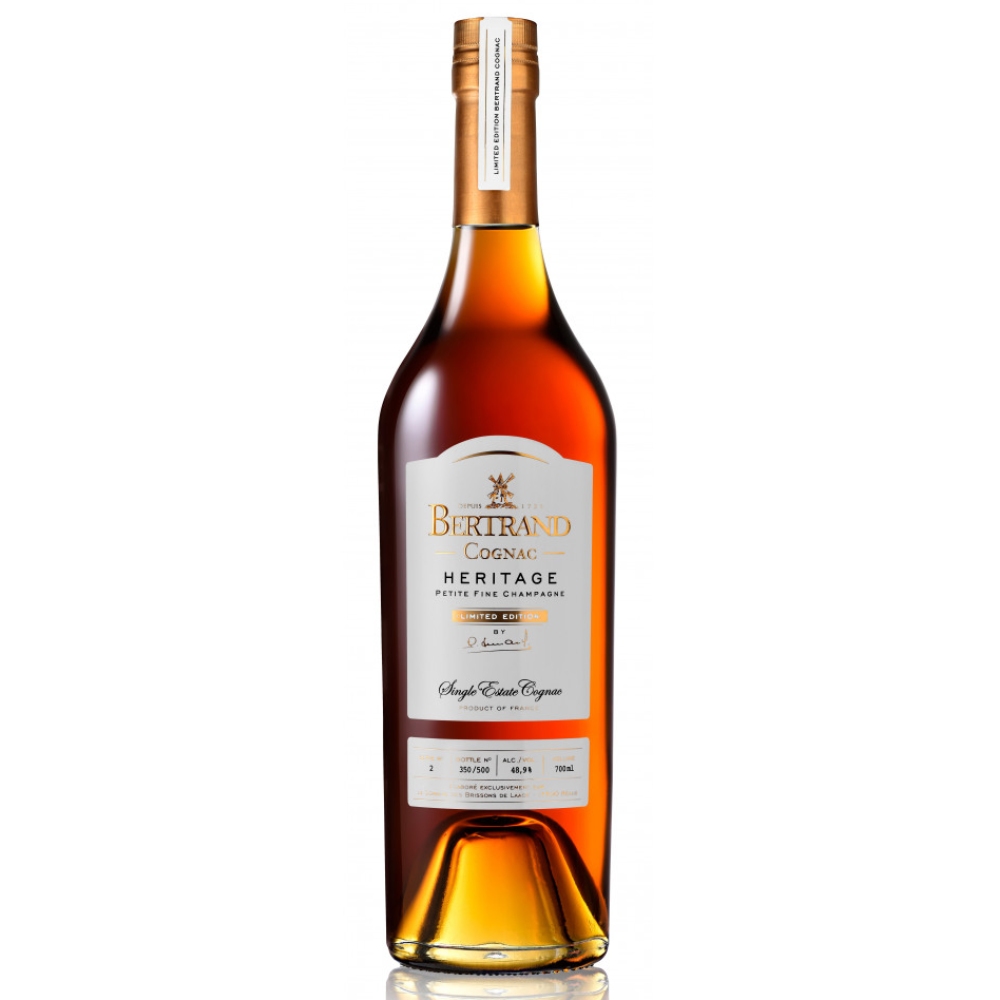
Intense and complex, ever-evolving, the very definition of rancio. Full and structured, with a strong rancio throughout the tasting. This Petite Champagne Cognac is light on the palate yet incredibly complex.
Purchase your bottle of Bertrand Héritage now to substitute any single malt Whisk(e)y.
Laurichesse Le Chai de Mon Pere Fut 301 Cognac
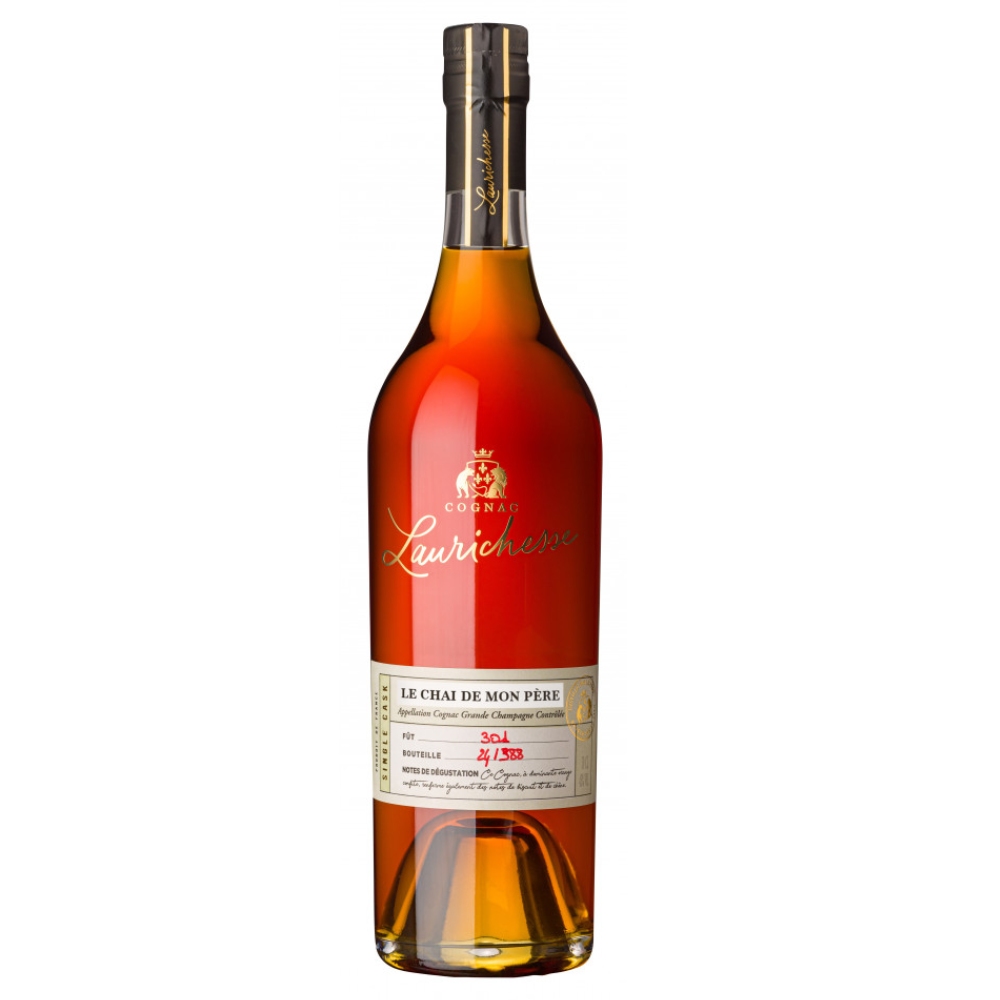
The Laurichesse Le Chai de Mon Pere Fût 301 is a rare, single-cask Cognac, distilled in the 1970s and matured in French oak at a cask strength of 45% ABV. Crafted by the Laurichesse family on their historic Verrières estate, this Grande Champagne Cognac delivers rich fruity notes, warm pastry aromas, and hints of antique leather.
On the palate, it boasts a harmonious balance of candied orange, freshly baked biscuits, and toasted oak staves. With only 388 bottles produced, it is a truly exclusive and luxurious spirit to treasure.
Add this jewel of Laurichesse Fut 301 to your cart to see for yourself why it’s great drinking Cognac.
Conte & Filles 2013 Fins Bois
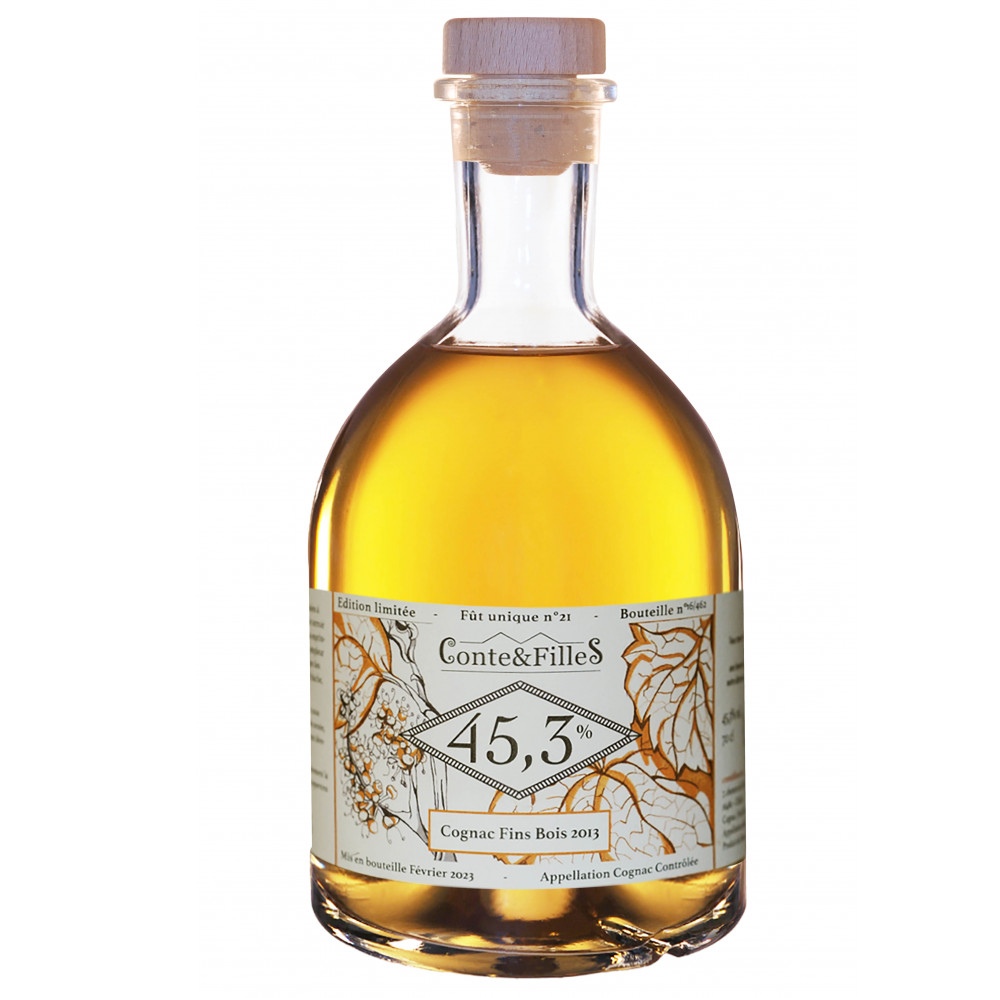
The Limited Edition Conte & Filles Fins Bois 2013 is an elegantly crafted, single cask Cognac from a distinct plot of vines in the commune of Saint Aulais La Chapelle, known for its deep clay and limestone terroir, fostering more floral eau-de-vie.
This Cognac, distilled without lees for enhanced finesse, was matured in very old Tronçais barrels, providing a unique structure and texture to its floral and zesty fruitiness. Bottled in February 2023 at 45.3% ABV, it is unfiltered, additive-free, and naturally colored, showcasing the true essence of its terroir.
Get yourself a bottle of Conte & Filles 2013 Fins Bois here.
Vallein Tercinier Hors d’Age Cognac
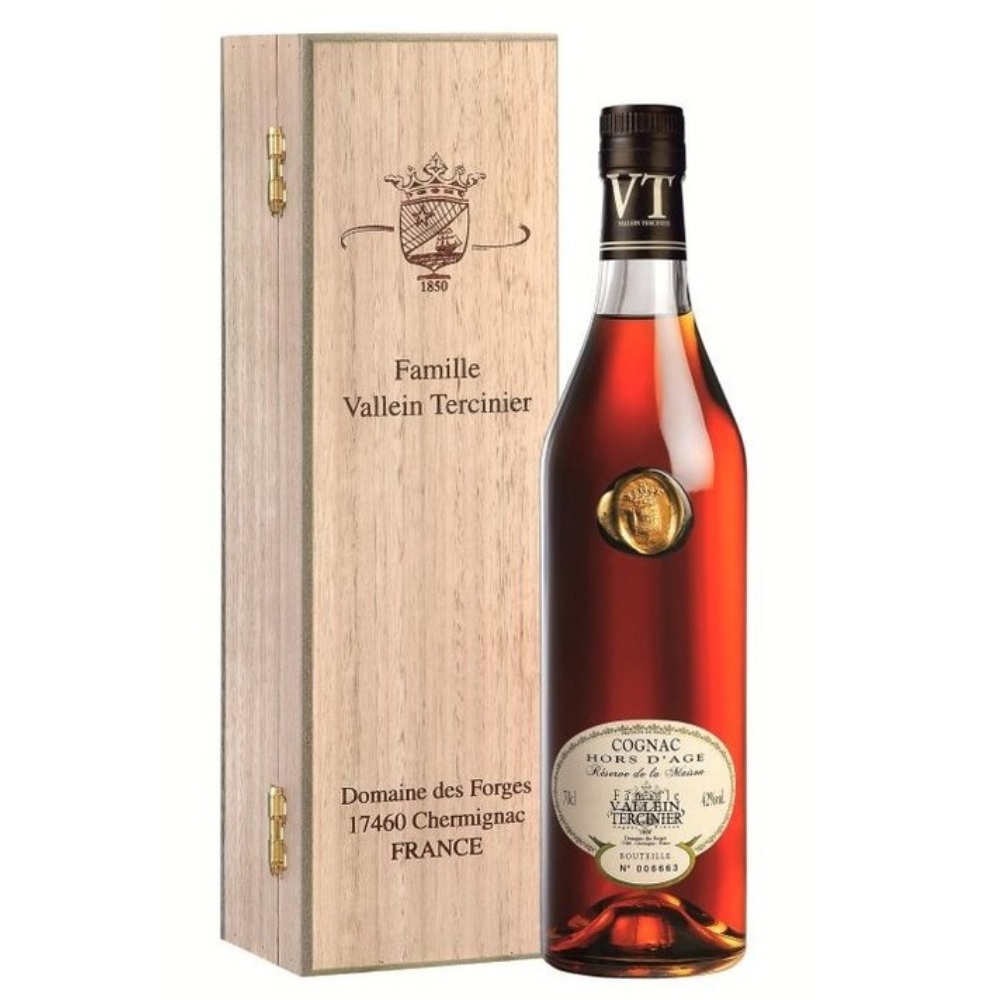
The Vallein Tercinier Hors d’Age Cognac is a beautifully balanced blend of Grande Champagne and Petite Champagne eaux-de-vie, skillfully crafted from over 20 different eaux-de-vie, the youngest aged for a minimum of four decades.
Produced by a family boasting five generations of cellarmaster wisdom, this Cognac offers exceptional quality without the ultra-premium price. On the nose, it unveils a complex bouquet of tropical fruits like papaya and pineapple, jasmine, ginger, and vanilla, while the palate indulges in soft and sweet notes of dried peach, caramel, and a hint of rancio, ending in a pleasing finish.
Learn more about this benchmark Vallein Tercinier Hors d’Age Cognac here.
Audry Memorial Cognac
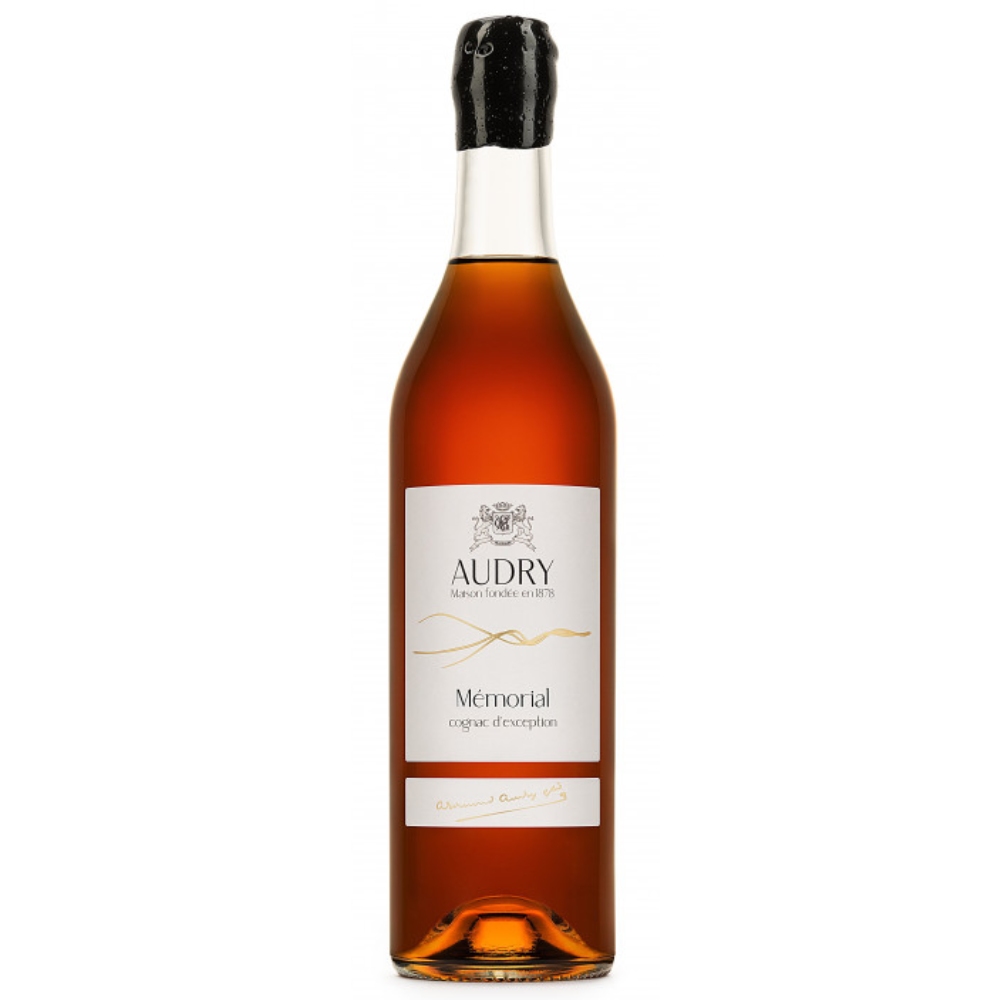
The Audry Mémorial Cognac is an exquisite Fine Champagne blend, meticulously crafted from eaux-de-vie aged between 30 to 60 years, resulting in a rich and complex palette of butter cream and pine notes.
Originating from the Grande and Petite Champagne regions known for their high chalk content and maritime climate, this Cognac has been aged for decades in oak barrels from the Limousin and Tronçais forests, enhancing its distinct, refined character. On the nose, it offers a sumptuous and lingering complexity of green pepper, fresh apple, tobacco, spices, roasted coffee beans, cocoa, and rancio, while the palate is full-bodied and mellow, with hints of anis, violet, licorice, and a smooth honeyish aftertaste.
Discover the world of Audry with this fine Memorial Cognac.
Grosperrin N°64 Borderies
The Grosperrin No. 64 Borderies Cognac is a very old and precious spirit, originating from a small farm in the heart of the Borderies region, and meticulously preserved by the family in honor of the original winemaker. Having aged in the Grosperrin family cellar on the banks of the Charente river, this Cognac embodies the quintessential characteristics of a Borderies Cognac.
On the nose, it displays floral notes of candied violet, dried flowers, and spiced roses, further enriched by elegant rancio, woody undertones, cigar box, licorice, and mature aromas. On the palate, its frank, mineral attack, powerful yet controlled development, and lengthy finish that mirrors the nose, all contribute to an elegant and beautiful tasting experience.
Experience the Grosperrin N°64 Borderies by clicking here
Park Borderies Mizunara Aged 10 Years Cognac
The Park Mizunara Borderies 10 Years Cognac is an innovative fusion of Japanese and French traditions, featuring eaux-de-vie aged for approximately 10 years in French oak casks and finished in Japanese Mizunara oak barrels.
This unique process lends it an inviting golden honey tone and a full aromatic palate with soft floral elements, acacia, nougat, sweet mango, quince, and dried apricots, typical of a Borderies Cognac. On the palate, it offers a soft, round taste with a powerful culmination, unveiling complex, spicy notes of white pepper, licorice, cinnamon, and vanilla, resulting in a truly exclusive tasting experience.
Read more about the Park Borderies Mizunara Aged 10 Years Cognac here
François Voyer Cask Experience N°2
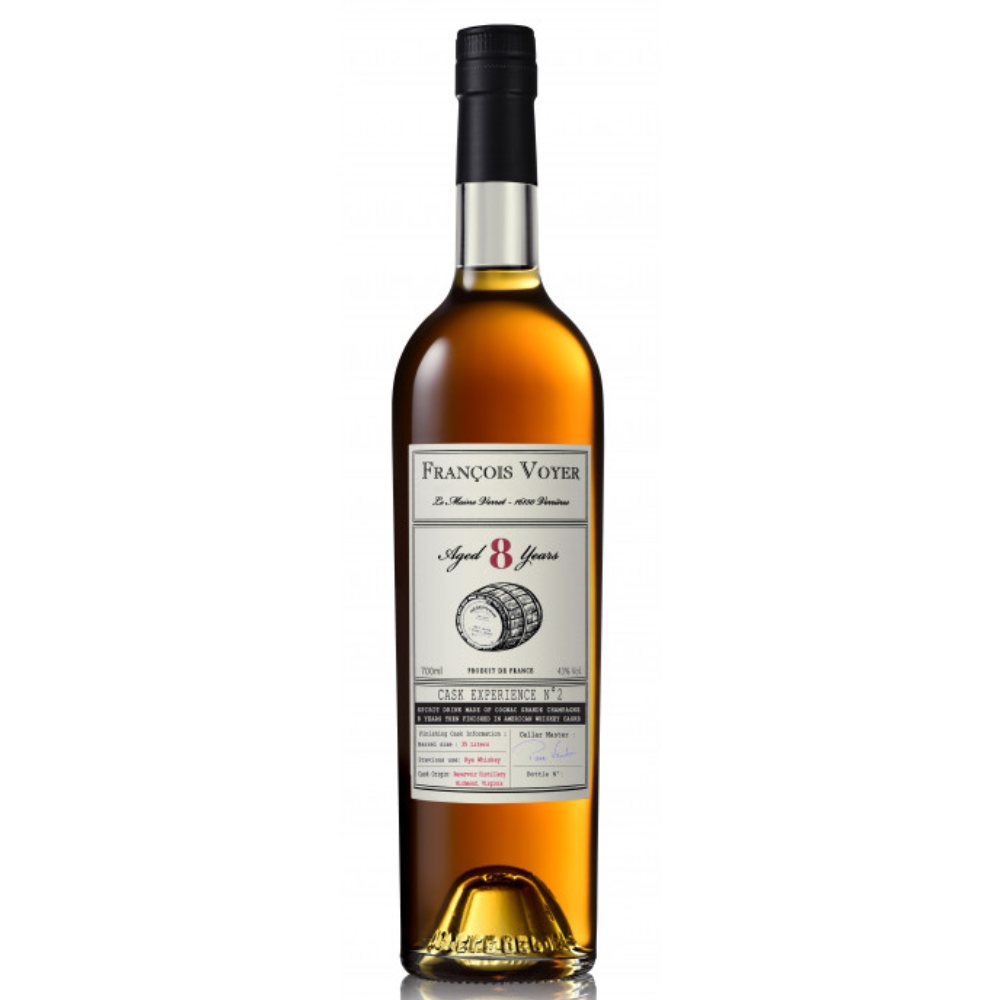
The François Voyer Cask Experience N°2 Cognac is an innovative spirit that has undergone a double maturation process, aging for seven years in Limousin oak barrels and an additional year in American Whisk(e)y barrels from Reservoir Distillery.
This limited release of only 180 bottles presents a deep amber color, with a nose that combines smoky, woody notes, powerful spice, and soft fruits, showcasing the classic Charentaise eaux-de-vie character. On the palate, it achieves a perfect balance between the intensity of the rye cask notes and a rich, lingering vanilla sweetness, bottled at a respectable 43% ABV.
Get yourself a bottle of François Voyer Cask Experience N°2 here
Domaine du Chene Jean Doussoux XO N°89 Cognac
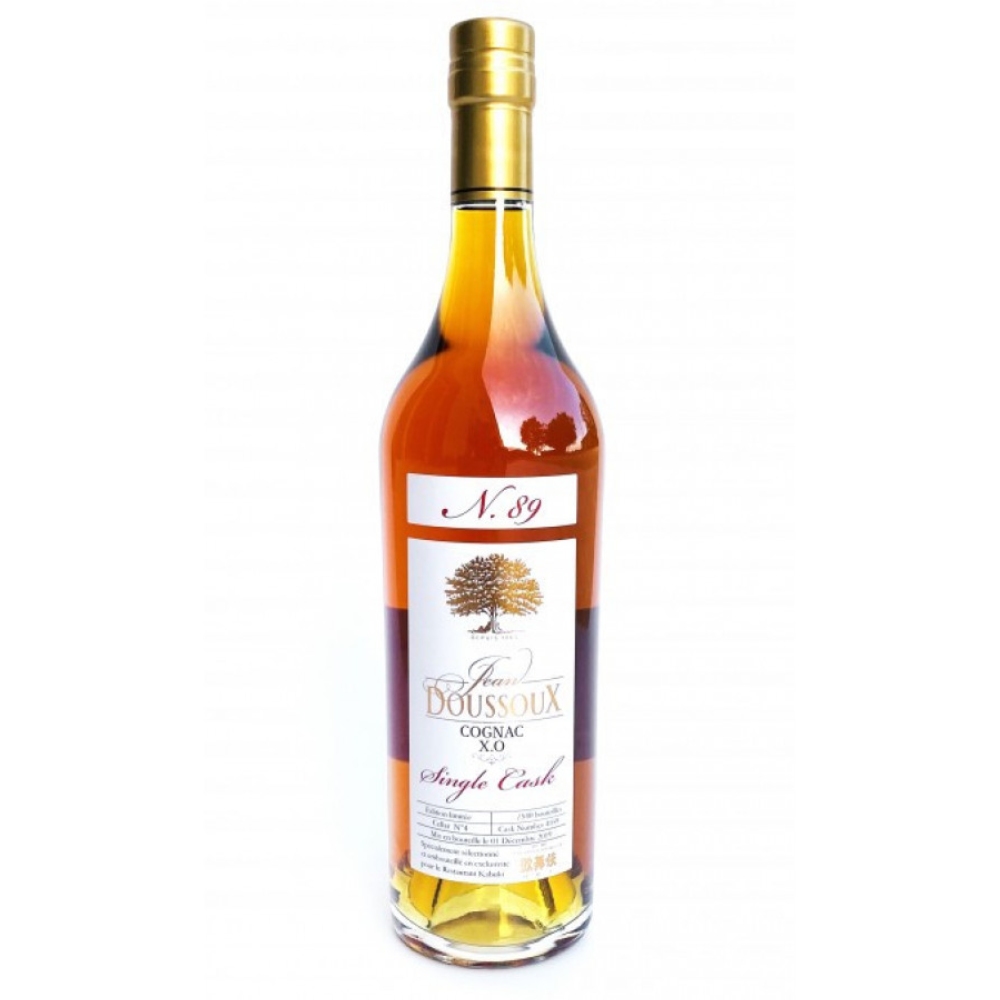
The Domaine du Chêne Jean Doussoux XO N°89 Cognac is a limited edition, award-winning blend of Bons Bois eaux-de-vie, harvested in 1989 and matured in a single cask for close to three decades, resulting in a subtle yet sensual flavor profile.
This highly sought-after collector’s item, produced with 100% Ugni Blanc grapes and traditional methods, offers a delicate and rich nose of vanilla, clove, caramel, oak, forest floor, beeswax, and leather. On the palate, it delivers an aromatic, rich, and unctuous experience, marked by toasted and oaky notes in a round, structured body with a long length, beautifully demonstrating the true craftsmanship of Domaine du Chêne.
Add this Bons Bois N°89 gem from Domaine du Chene to your cart now
Raymond Bossis XO Brut de Fut Cognac
The Raymond Bossis XO Brut de Fût Cognac is a unique, high-strength blend, matured for over 40 years through natural evaporation, “Part des Anges,” resulting in unrivalled aromatic power and flavor. This rare Cognac, bottled at 56% vol, is both unassembled and unfiltered, revealing all the characteristics of a well-aged XO. Crafted to perfection by Cellar Master Jean-Luc, this limited-edition Cognac jewel stands as a testament to the exquisite artistry of Raymond Bossis.
Get yourself a bottle of Raymond Bossis Brut de Fut here
Marancheville L’Exemplaire N°4 Limited Edition Cognac
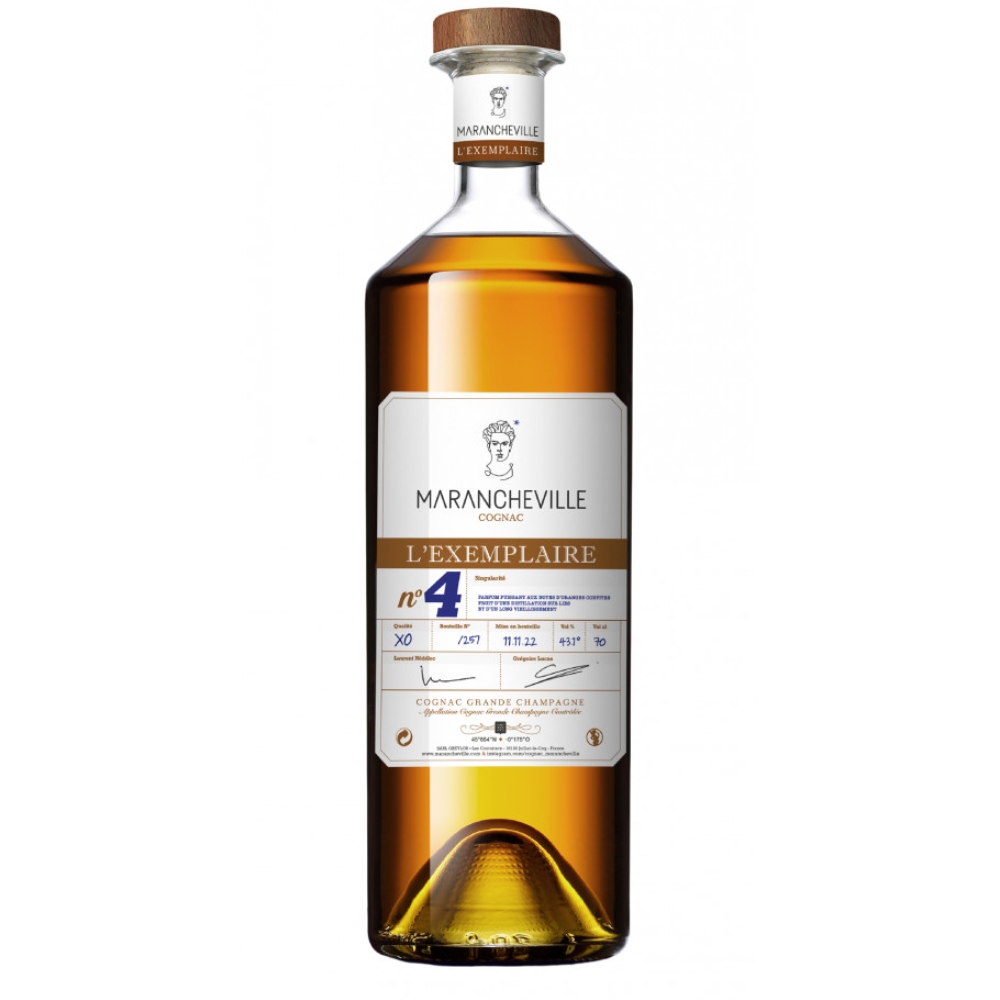
Marancheville’s Exemplaire N°4, the fourth in their limited edition series, is a product of passionate craftsmanship, blending eaux-de-vie distilled on lees in the early 1980s and matured for 35-40 years. With a distinct nuance of candied orange and a woody structure, this festive delight is produced exclusively from Grande Champagne eaux-de-vie, with only 257 bottles available. Its expressive palate and complex finish are a testament to its long aging process, making this glowing mahogany Cognac a rare gem of the premier cru.
Take a look at the Marancheville L’Exemplaire N°4 Cognac here
Pasquet “Tresors de Famille” Le Cognac d’André L.68/72
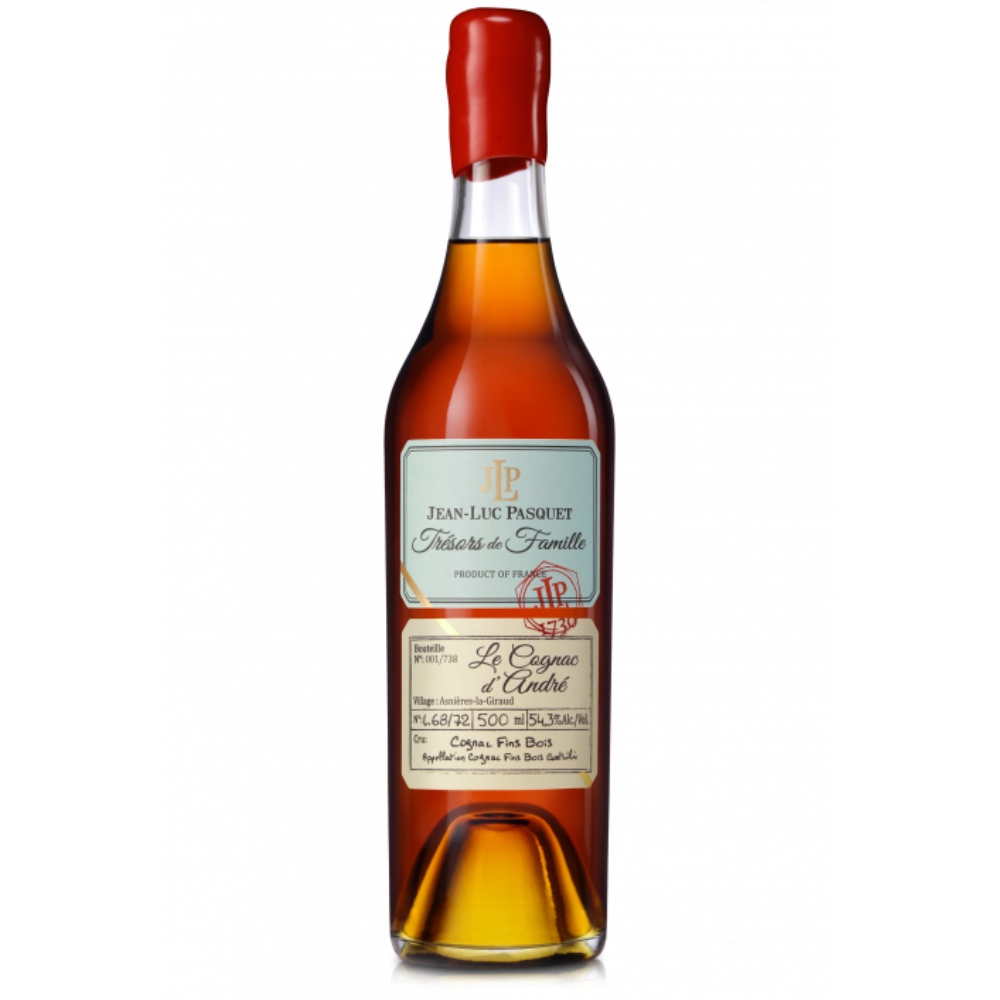
Le Cognac d’André L.68/72 is a beautifully balanced and complex Cognac, created from the vineyards of André Porchet, a 6th generation winegrower in the Fins Bois cru. This unique Cognac has a real signature, a blend composed in the 80s, with notes of passion fruits, spices, and brioche on the nose, and flavors of passion fruits, honey, and plum jam on the palate. With only 738 bottles produced, this is a rare and highly sought-after Cognac.
Get yourself a bottle of Pasquet “Tresors de Famille” Le Cognac d’André here
The Expert Malternative Favorites
We asked spirits experts, Angus MacRaild of Whisky Sponge, John Go of Malt Review and the Cognac Expert team the question: “Do you have a Cognac Malternative? Which is your personal favorite? This is what they revealed:
Angus MacRaild: Cognac
“Hard question! I am biased of course, as a bottler of Cognac myself, I am very emotionally attached to the first one we did: a Héritage 45 Fins Bois from Grosperrin’s cellars. I had this one bottled with about 1.5 degrees reduction from cask strength and I think it brought just the right amount of freshness. I really adore Fins Bois as a region, I think it often produces the most vibrant and expressively fruity eaux de vie. I also love many of the bottlings from Vallein Tercinier, I think they’re doing incredible work. And, of course, many of Grosperrin’s own bottlings. Guilhem is a great mentor to me in Cognac (which I still really know hardly anything about) and very much a kindred spirit in the way he obsesses about quality and his approach to things like blending and how to let spirits show in a bottle at their best.”
Discover the Vallein Tercinier brand page in our online shop. Listen to the Grosperrin Podcast down below to get insights.
Cognac Expert team: Cognac
“From an age-to-price ratio perspective, Cognac (and Armagnac) blasts most other spirits out of the water.
“Picking one? Ok, easy: Vallein Tercinier’s Single Cask Lot 96 Fins Bois Cognac. It’s got an unmistakably Cognac nose but with a lovely streak of exotic earthy orange. The balance between fruit, wood, and spice is excellent. There is more than enough mouthfeel and texture from the elevated alcohol level, yet it feels so melted. A captivating, seductive Cognac to be sure!”
Check out more about Vallein Tercinier’s Single Cask Lot 96 Fins Bois over in our online shop.
For other Cognacs, either Laurichesse Le Chai de Mon Père Fût 104 for its sweet earthy tobacco and creamy roasted espresso notes. Think affogato meets Cognac. Or Conte et Filles Héritage for its extreme finesse. Not a chest-thumper of a Cognac, but a model of elegance.”
Find here the Laurichesse Le Chai de Mon Père Fût 104 to enjoy creamy roasted espresso notes.
Check out Conte et Filles Héritage as a great Cognac malternative.
John Go: Cognac
“I love Cognac. It’s something I’ve been interested in for a few years now. Largely due to how different the flavors are from other spirits and how affordable some really old vintages and blends can be. Exploring it just hasn’t been easy since I’ve had to rely on travelling abroad to buy bottles from lesser-known brands as I’m from Manila and we only have the big brands such as Hine and Camus available.
Dudognon’s Vieille Réserve was my first boutique Cognac. So I’ll always have a soft spot for that. But more recently, André Petit’s Les Quatre Années de Bernuil amazed me the most.”
Get the full story on André Petit Les Quatre Années de Berneuil in our online shop and check out Dudognon Vieille Réserve.
Cognac: The Closest Alternative to Malt Whisk(e)y
There you have the deep-dive of cognac vs Whisk(e)y, examples of cognac brands that make great Whisk(e)y alternatives and hopefully fill your lencairn glass or rocks glass in the near future with some of our favorite eaux-de-vie.
Whether you’re more inclined to venture into the more exotic worlds of Tequila, Mezcal and rum or firmly set on sticking with French brandies – the range of choice when selecting a “malternative” presents itself in abundance. However, what we can take home from our experts – is that Cognac stands as the strongest contender when it comes to finding the closest alternative to malt Whisk(e)y in terms of appearance, taste and experience.
That being said, we can conclude that you should be scoping out naturally produced, well-aged eaux-de-vie (that haven’t been filtered and are free of any other additives), in order for the experience to live up to the same offered by a premium malt Whisk(e)y.
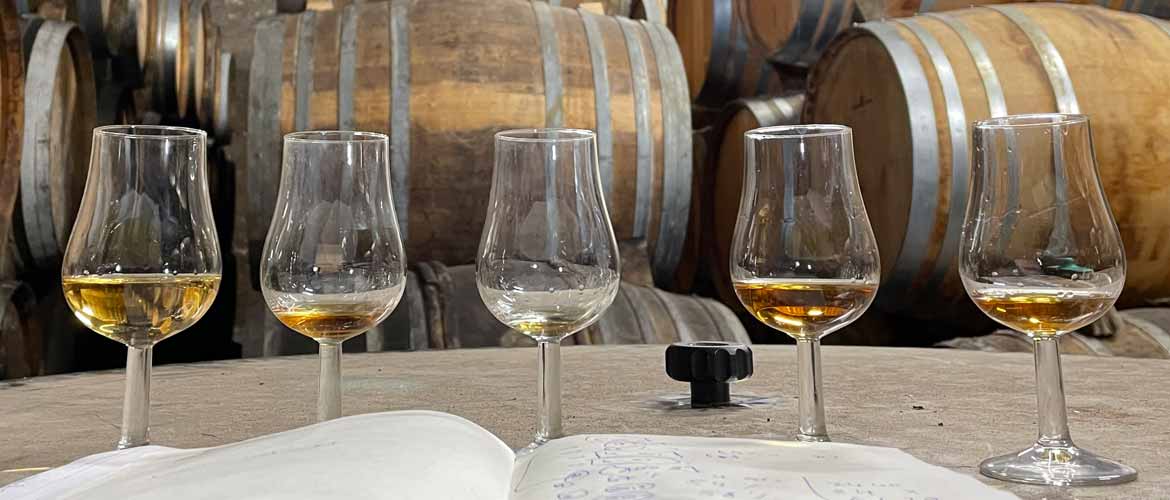
FAQs: Cognac vs. Whisk(e)y
1. Which is better Cognac or Whisk(e)y?
The preference between Cognac and Whisk(e)y is subjective and depends on individual taste. Cognac, a type of brandy from France, is known for its smooth, fruity, and complex flavors, often enjoyed straight as an after-dinner drink. Whisk(e)y, a fermented grain mash spirit, offers a wide variety of styles like Scotch, Irish whiskey, bourbon, rye, each having distinct flavor profiles, from smoky to sweet. Some enjoy Whisk(e)y straight, on the rocks, or in cocktails. Try both to discover your personal preference.
2. Is Cognac considered a Whisk(e)y?
No, Cognac is not considered a Whisk(e)y. Cognac is a specific type of brandy, a spirit distilled from fermented fruit juice, typically grapes. It must be made in the Cognac region of France to earn the name. On the other hand, Whisk(e)y is a distilled alcoholic beverage made from fermented grain mash, such as barley, corn, rye, or wheat. It’s aged in wooden casks, generally made of charred white oak. Despite both being spirits, the ingredients, production process, and geographical origins distinctly separate cognac and Whisk(e)y.
3. How is Cognac different from Whisk(e)y?
Cognac and Whisk(e)y differ in their primary ingredients, production process, and geographical origins. Cognac is a type of brandy made from specific grape varieties in the Cognac region of France. It’s double-distilled in copper pot stills and aged in French oak barrels, which gives it rich, fruity, and often complex flavors.
Whisk(e)y, on the other hand, is made from fermented grain mash, including barley, corn, rye, or wheat. The distillate is aged in wooden casks, generally charred white oak, which imparts diverse flavors. Types of Whisk(e)y, like Scotch or bourbon, have specific rules about production and aging.
While both are enjoyed worldwide, the decision between cognac and Whisk(e)y often comes down to personal preference based on the distinct taste profiles of each.
4. Why is Cognac more expensive than Whisk(e)y?
Cognac can be more expensive than Whisk(e)y due to several factors:
1. Production Process: Cognac undergoes a meticulous double distillation process in copper pot stills, which is labor and time intensive.
2. Aging: Cognac must be aged in French oak barrels, which are more expensive than other types of oak barrels used for Whisk(e)y.
3.Geographical Limitations: Cognac must be produced in the Cognac region of France from specific grape varieties, limiting its production capacity and creating a form of exclusivity.
4. Brand Image: Cognac is often associated with luxury and prestige, justifying higher prices.
5. Supply and Demand: Limited supply coupled with high global demand can drive up prices.
Remember, while Cognac can be more costly, this isn’t always the case. There are also premium, expensive Whisk(e)y, and the price of either can vary greatly depending on the brand and age.
5. Cognac vs Whisk(e)y vs. Bourbon How is it made?
1. Cognac: A type of brandy, made from specific grape varieties in the Cognac region of France. The grape juice is fermented into wine, then double-distilled in copper pot stills to create ‘eau-de-vie.’ This is aged in French oak barrels for at least two years, allowing complex flavors to develop.
2. Whisky: Made from fermented grain mash, including barley, corn, rye, or wheat. The mash is distilled and the resulting spirit aged in wooden casks, typically charred white oak. The aging process, which varies by type, imparts distinct flavors.
3. Bourbon: A type of American Whiskey, it must be made from at least 51% corn and aged in new charred oak barrels. The distillate must be stored at no more than 62.5% alcohol by volume and entered into the barrel for aging at no more than 62.5% alcohol by volume. There’s no minimum specified duration for its aging.
6. Is Cognac an old man’s drink?
The perception of cognac as an “old man’s drink” is a stereotype that doesn’t necessarily reflect reality. Cognac, like many spirits, can be appreciated by people of all legal drinking ages, depending on their taste preferences. It’s true that cognac has a rich history and has often been associated with more mature, sophisticated drinkers due to its smooth, complex flavors and its status as a luxury item. However, in recent years, Cognac has seen a resurgence in popularity among younger generations, particularly as a component in cocktails or as a pairing with certain foods. Its use in popular culture, particularly in music and entertainment, has also contributed to a broader demographic appeal. As with any spirit, the “right” drink is the one you enjoy responsibly, regardless of age or gender.
7. Does Cognac taste like Whisk(e)y?
While both cognac and Whisk(e)y are distilled spirits, their flavors are distinctly different due to variations in ingredients, distillation processes, and aging methods.
Cognac, a type of brandy made from grapes in the Cognac region of France, tends to have a smooth, fruity, and sometimes floral character with flavors of vanilla, caramel, and a variety of fruits and spices. It’s generally seen as lighter and more elegant, often with a certain sweetness.
Whisk(e)y, made from fermented grain mash, offers a broad array of flavors depending on its type. For example, Scotch often has smoky or peaty notes, bourbon is typically sweeter with strong notes of vanilla and oak, while rye Whisk(e)y might be more spicy.
While both can have notes of vanilla and caramel due to oak aging, the fruitiness of cognac and the grain-derived flavors of Whisk(e)y make them fundamentally different.

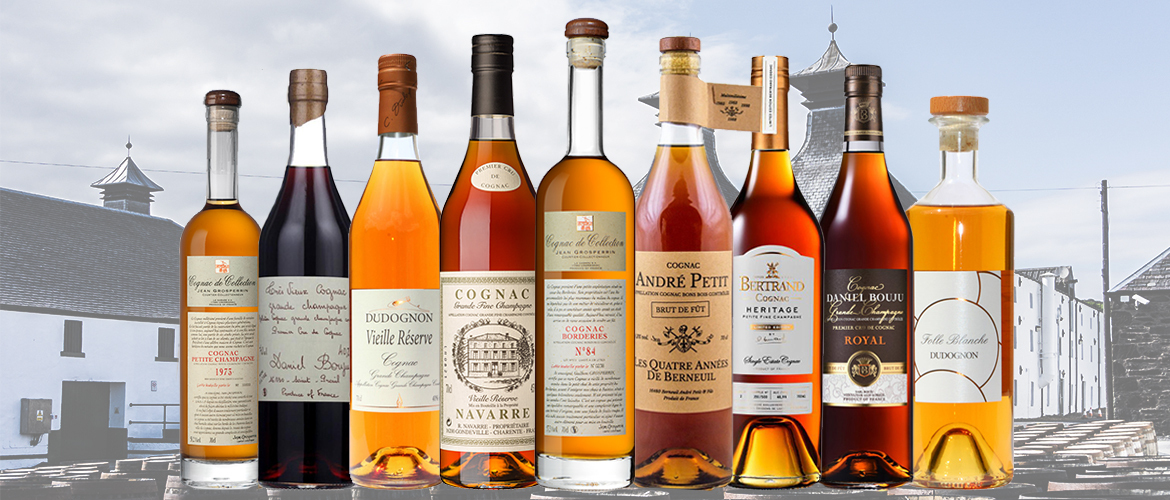
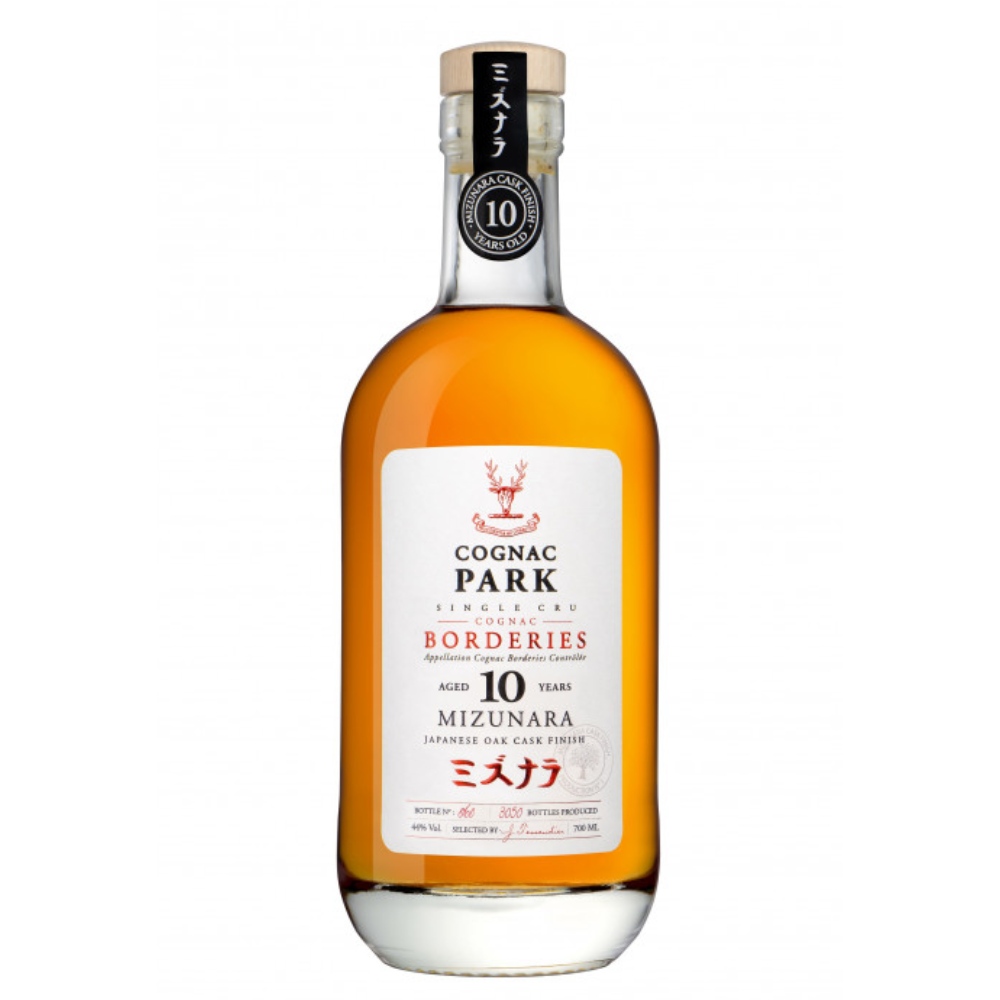
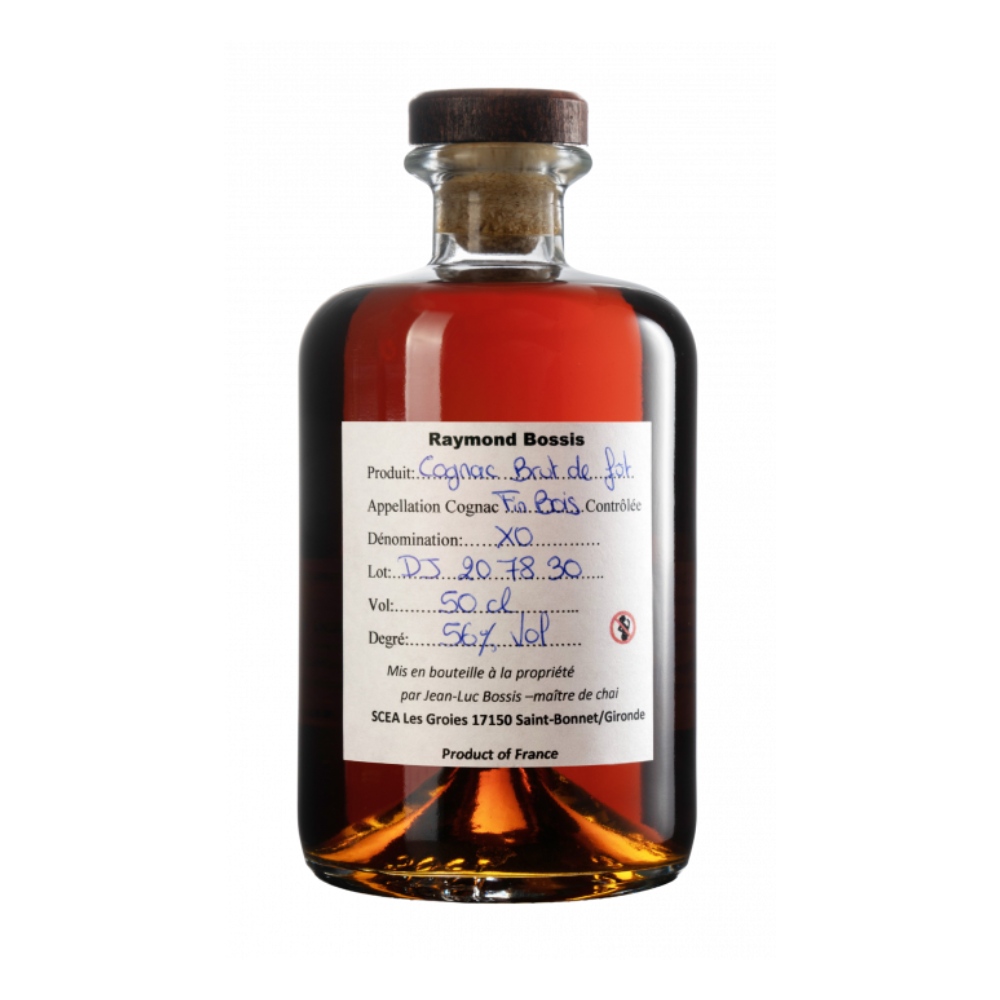






1 Comment
Hi, We went Cognac last May. We visited the Château Baron Otard. I tasted three different cognac and I have been very surprised that there is a big difference between the first and the third glass. I really do appreciate the cognac.
I remember my father who was drinking cognac at night. I am starting to drink cognac sometimes after a nice meal.
It was very interesting your blog I will read again.
Thanks Monique